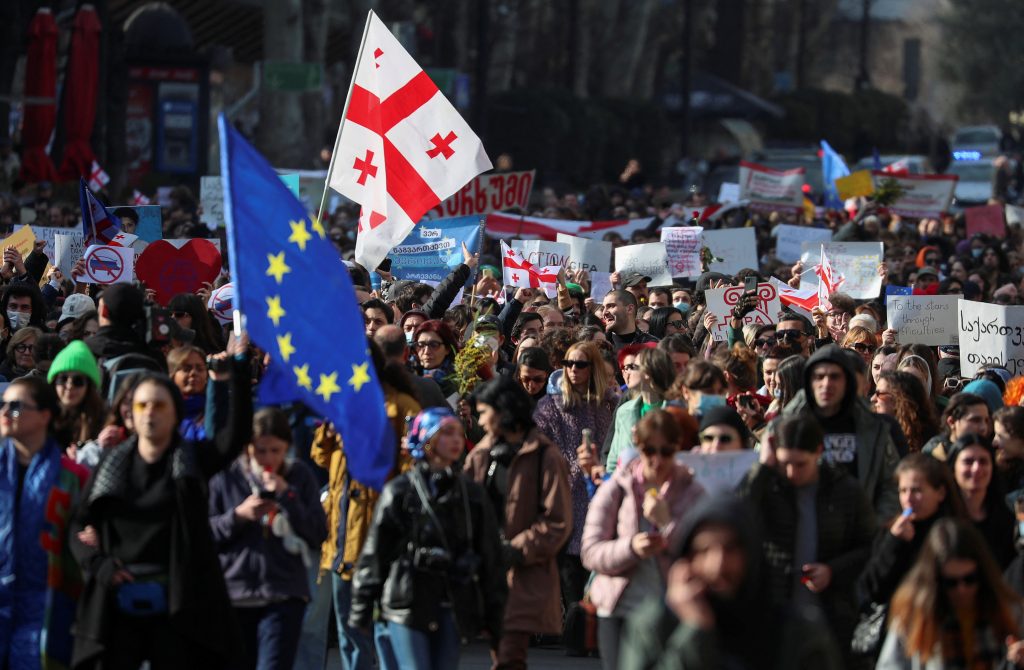Days of protests have erupted in Georgia following the government’s contentious decision to postpone the former Soviet country’s application to join the European Union.
Tensions have been brewing in the South Caucasus nation of 3.7 million people for months, with critics accusing the ruling Georgian Dream party of adopting increasingly authoritarian, pro-Russia policies in a shift away from the West that has dashed hopes for Georgia’s long-awaited path to EU membership.
The rallies have been greeted with a brutal police response as the ruling party and hundreds of protesters clash over the country’s future and whether Georgia should align more closely with Russia or Europe.
Tensions intensified in late October when Georgian Dream claimed victory in a contested election widely seen as a referendum on joining the EU.
Georgia, which gained independence from the Soviet Union in 1991, has pursued EU membership for years to join the bloc written into its constitution.

Polls consistently show that most Georgians support the policy, and it appeared to be on track last year when the country gained EU candidate status.
But on November 28, the government signalled a pivot away from Europe in a move that sparked widespread anger.
Prime Minister Irakli Kobakhidze said Georgia would suspend EU accession talks for four years after the European Parliament rejected the country’s election results, citing alleged irregularities.
The Georgian Dream governing bloc accused the EU of using the prospect of accession talks to “blackmail” Georgia and to “organize a revolution in the country.”
“We have decided not to put the issue of opening negotiations with the European Union on the agenda until the end of 2028,” it said. “Also, we refuse any budgetary grant from the European Union until the end of 2028.”


